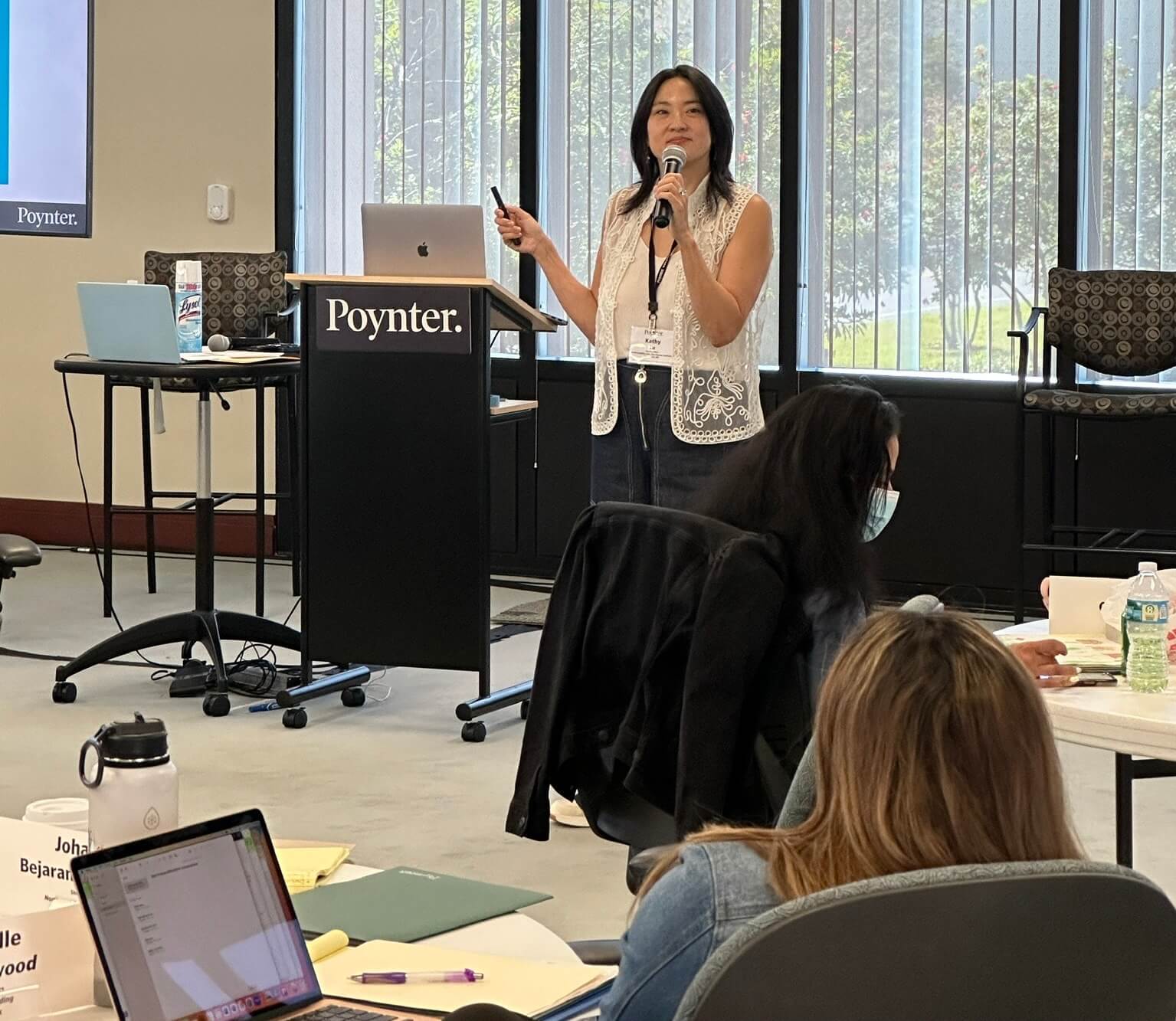The Week in Fact-Checking is a newsletter about fact-checking and accountability journalism, from Poynter's International Fact-Checking Network & the American Press Institute's Accountability Project
Announcing Global Fact 5
Today the International Fact-Checking Network announced the fifth Global Fact-Checking Summit will be held in Rome from June 20-22, 2018. The conference is free to attend and will address topics ranging from how to reach out to skeptical audiences to automated fact-checking. (Express your interest here). The IFCN also announced the location of Global Fact 6, which will be held in Cape Town in 2019.
Quote of the week
"People are commenting on comments without even checking out the facts. If somebody says today a frog has eaten a horse, then people will start commenting, ‘oh my God what color was the frog?’ as opposed to actually checking out the fact if the frog had eaten the horse or not.” — Aiyaz Sayed-Khaiyum, Fiji attorney general
Lying at the speed of light
It’s really difficult, says television journalist Ali Velshi, to prepare for live-fact-checking on television when people insist on lying about things you "didn’t know they were going to lie about." (ICYMI, Poynter's Alexios Mantzarlis has advice.)
Where's the line between satire and fake news?
That's the question posed by Daniel Funke in an article for Poynter, which explores a rare apology from a fake news site that calls itself satire. Spoiler: Labeling and tone are kind of important.
Facebook's helping with elections — if you tell them your birthdate
Aimed at "eliminating integrity issues around elections, largely caused by … fake posts," Facebook says it's working with the election commission in India to remind young people about voter registration. They'll get a reminder on their 18th birthday.

'The end of the internet'
The Daily Dot fact-checks rumors and statements about U.S. Federal Communications Commission Chairman Ajit Pai and net neutrality, and finds equally hysterical statements from all sides.
Snapchat avoids fake news
The popular social media messaging app has evaded the misinformation problems that plague Facebook and Twitter — and its recent app update is likely to reinforce that.
What it's like to fact-check Nigeria
David Ajikobi of Africa Check says that "nothing quite prepares you for the task of fact-checking in a country like Nigeria." Read about his experiences this year.
Bon anniversaire!
Speaking of birthdays, Le Monde's Décodex is nearly a year old. Nieman Lab tracks its tenure, which began on the rocky side.
Some fact-checking fun
A fake J.K. Rowling tweet accidentally made it into a new book. Bustle tracks down how that happened.
@airbearlerma No, that's fake.
— J.K. Rowling (@jk_rowling) February 3, 2016
Fake news on the left, fake news on the right
Each week, Vice's "Can't Handle the Truth" blog takes an multi-partisan look at misinformation swirling around the globe. The latest: a fact-check of anti-Trump fake news.
Real News Day
The newspaper industry marked “Real News Day” this week and offered some advice to protect yourself from misinformation — including creating your own favorite list of trusted reporters.
The Weekly Standard's Fact Check project gets verified
The conservative news outlet has joined the list of fact-checkers partnering with Facebook to debunk misinformation, news that was met with both praise and criticism. Here's the IFCN's statement.
Share fake news? Go directly to jail.
Irish lawmakers this week proposed a law that would punish people who share fake news with five years in prison or fines of up to €10,000.
Pizzagate's one-year anniversary
It's been one year since a North Carolina man drove to Washington, D.C., and fired shots inside a pizzeria. Reveal from the Center for Investigative Reporting takes a deeper look at the viral conspiracy theory that led him there.
Quick fact-checking links
(1) TruthBuzz had a webinar this morning on making facts go viral. (2) Atheists jump on the fake-news bandwagon. (3) Arab journalists gather to discuss misinformation. (4) Hey fake news, welcome to my party. (5) Facts the Florida fact-checkers learned about Florida.(6) A "fake news"-aka-satire site that's all about music. (7) Among other things, fake news is a sin. (8) A survey conducted by a public relations firm shows that reporters usually don't rely on facts provided by a public relations firm. (9) Mozilla is awarding $40,000 to artists with the best interpretations of fake news. (10) Brazilian fact-checking outlet Aos Fatos has hired five new staffers. (11) A Burmese official used one of Donald Trump's favorite insults to deny the Rohingya minority's identity. (12) In Mexico, politicians' lies are becoming a business. (13) Social media companies are starting to face the high cost of cleaning up their platforms. (14) Fake news discussions continue in Italy: Former PM Matteo Renzi says he'll set up a parliamentary committee to investigate disinformation after the elections. (15) Is anyone ever wrong anymore?
Until next week,
Jane, Alexios and Daniel
Looking for previous editions of this newsletter? You can find them here.







